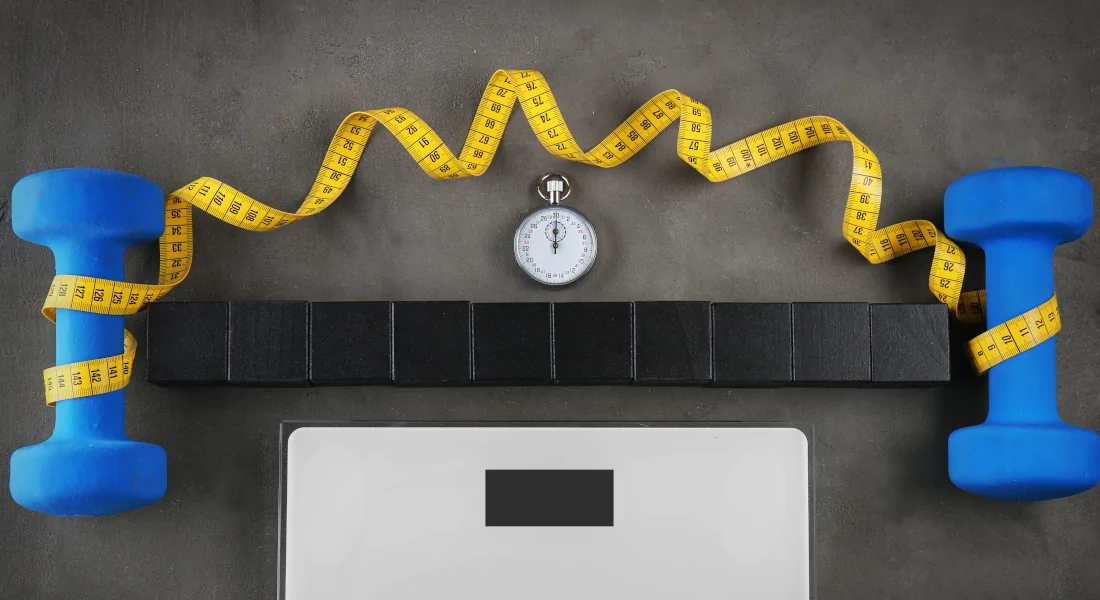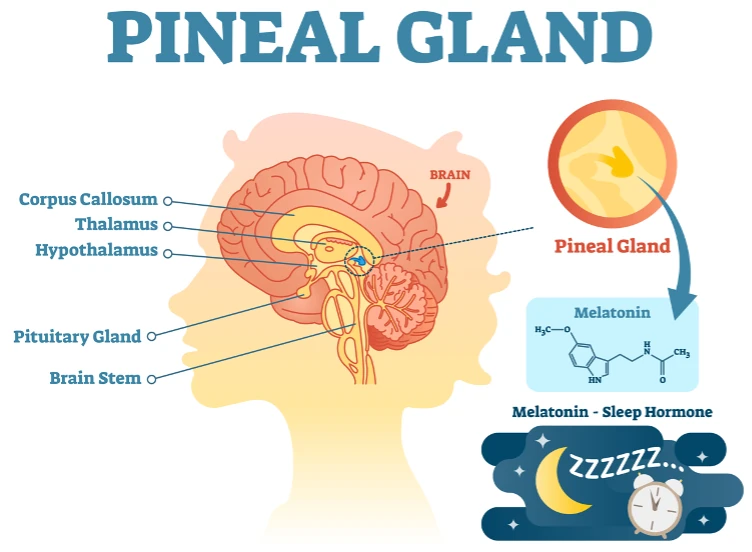Sleeping is often seen as a passive activity, but surprisingly, you can burn several calories when asleep. This article delves into how you can calculate roughly how many calories you burn whilst you are asleep, what factors affect the number of calories burnt during sleep and whether there is anything you can do to increase the number of calories burnt.
How many calories do you burn while you sleep?
The average sleeper burns 50 calories per hour of sleep. Thus, you can burn, on average, 400 calories during an 8-hour sleep! However, this number can vary significantly from anywhere as low as 40 calories per hour of sleep to 80 calories per hour.
This variation exists between sleepers for many reasons, such as gender, age, general fitness, diet, etc. All of these factors affect your basal metabolic rate (BMR). Your BMR is the rate at which the body uses energy at rest (e.g. being awake) to maintain vital functions such as breathing and keeping warm.
What factors affect the amount of calories you burn when asleep?
Having discussed BMR, let’s look at the key factors affecting your BMR. Listed below are the most critical factors that affect your BMR (some of which can be influenced by our healthy habits):
Height: Research has shown that tall people (1.87m +/- 0.04cm) have a higher BMR than those shorter. However, this can be made up for in other ways.
Weight: Your BMR can be increased by losing weight. It has been noted that BMR increases by 0.02kcal/min with a 1% decrease in body weight.
Gender: Men, on average, have a higher BMR than their female counterparts, as women have a higher proportion of body fat. However, this is counteracted by the fact that women, on average, consume fewer calories than men, thus burning more fat.
Age: BMR decreases in an almost linear fashion as you grow older. This varies by person due to a variety of factors.
Fitness: Exercising more can lead to an increased BMR, but depending on the individual, after a certain point of weight loss due to exercise, your BMR can slow down, making it harder to maintain the weight loss.
Medical conditions: Various medical conditions can increase or decrease the BMR. Common conditions which are known to increase an individual’s BMR are fever, pregnancy, phaeochromocytoma, cancer, congestive heart failure, acromegaly, polycythemia, and Paget’s disease of the bone. Common conditions which are known to decrease an individual’s BMR are obesity, starvation or anorexia, hypogonadism, adrenal insufficiency, Cushing’s syndrome, and sedative drugs.
Another critical factor affecting your basal metabolic rate is the amount of circulating thyroxine. Thyroxine activates genes in the body that increase metabolic rate and thermogenesis. Increased metabolic rate involves increased oxygen and energy consumption.
How to calculate your calories burnt whilst asleep
Calculating the number of calories you burn during your sleep can be a tricky exercise. We must first calculate your basal metabolic rate, as this is the number of calories you burn while resting.
The basal metabolic rate for males can be calculated using the Harris-Benedict equation:
BMR (male) = 66.5 + (13.8 x weight in kg) + (5 x height in cm) – (6.8 x age in years)
The basal metabolic rate for females can be calculated using the following formula:
BMR (female) = 655 + (9.6 x weight in kg) + (1.8 x height in cm) – (4.7 x age in years)
The results of the above equations will give you your BMR while awake for a 24-hour period. In order to work out how many calories are burnt per hour, divide your BMR by 24. The final stage is to multiply this number by 0.85 to account for the lower basal metabolic rate whilst sleeping.
It is important to note that the results for the above equation do not take into account other factors that have an effect on your BMR such as medical conditions, hormones, genetics or muscle to fat ratio.
N.B. These rates are known to only sometimes truly represent your basal metabolic rate and are simply an educated guess based on all the information available.
Do the different stages of sleep affect calorie loss?
The different stages of sleep may affect the number of calories burnt during sleep. There is an argument that the number of calories burnt during the rapid eye movement (REM) stage of sleep is higher than other stages of sleep due to the heightened state of brain activity. The increased brain activity causes an increase in glucose consumption, leading to an increase in the BMR. On the other hand, the deep stage of non-REM sleep (NREM) sleep is associated with a slowing of our heart rate, breathing and a fall in our body temperature, thus resulting in lower energy consumption and less calories burnt.
Can you increase the number of calories burnt whilst sleeping?
Increasing the number of calories burnt whilst sleeping can occur if you increase your basal metabolic rate (i.e. burn more calories during your resting state). Unfortunately, factors such as age and genes that affect our BMR can’t be controlled. However, we can use other factors such as weight, fitness and diet to increase our BMR.
The following are some ways to increase your basal metabolic rate:
1. Physical exercise: This can increase your basal metabolic rate with particular benefits from resistance or strength (weight) training activities. One kilo of muscle mass increases your basal metabolic rate by 100 calories daily. A high-intensity strength training session may cause the basal metabolic rate to speed up for up to four days (afterburn effect).
2. Endurance training: Endurance training has also been shown to improve basal metabolic rate but at a lower level than physical exercise.
3. Using the sauna: Visiting the sauna can help increase your metabolism as it promotes recovery. It can also increase your VO2 consumption, contributing to your metabolic rate.
4. Regular small meals: Eating regular small meals is better than fewer large meals as it can create an idea of food scarcity. This will increase the propensity for your body to more readily store food breakdowns as body fat. Plus, if you are into a bit of spice, add it! Food containing chilli peppers also promotes fat burning via a compound called “capsaicin,” thus increasing your metabolic rate. However, this can cause discomfort, and the effects aren’t necessarily noticeable.
5. Better sleep: Finally, good sleep is essential to increasing your basal metabolic rate. Poor sleep has been linked to obesity, which decreases your metabolic rate. It’s crucial to build good sleeping habits and ensure you get the right amount of sleep every night.
Increasing your basal metabolic rate can be challenging because of the multiple factors involved, and there is no guaranteed way of measuring if the various methods have worked. It is often reported that those who have increased their basal metabolic rates feel better about themselves and can maintain a healthy body weight.
Interested in learning more about your sleep?
Sleep is an essential part of our day as it is one of the only times we relax and reset our bodies and minds. It is essential to optimise this as best as possible to be refreshed to tackle the next day. Feel free to explore these articles on breathing techniques to help you fall asleep quicker and the best sleeping positions to get you started.
As a leading sleep physician and psychiatrist, I offer consultations for those struggling to sleep. Please contact me if you require further advice and information on sleeping disorders such as insomnia.










